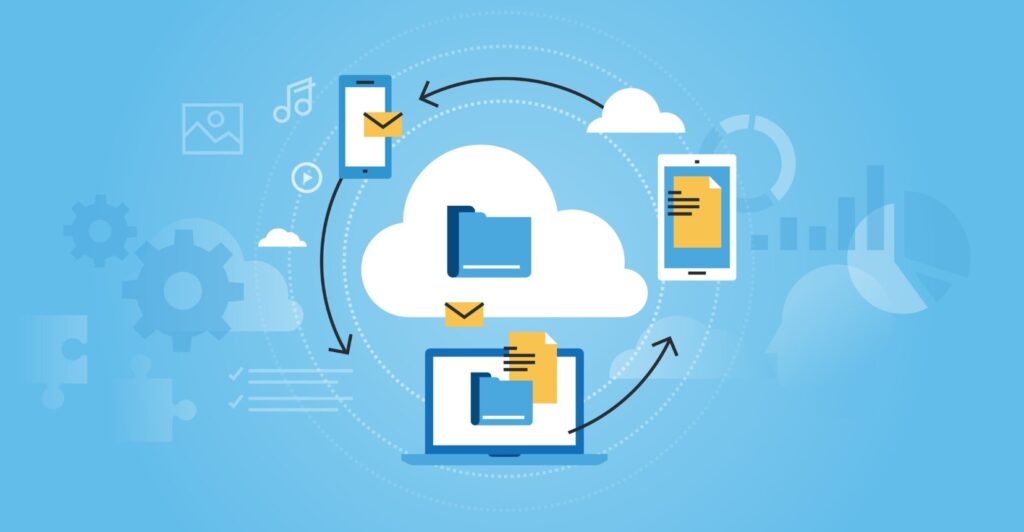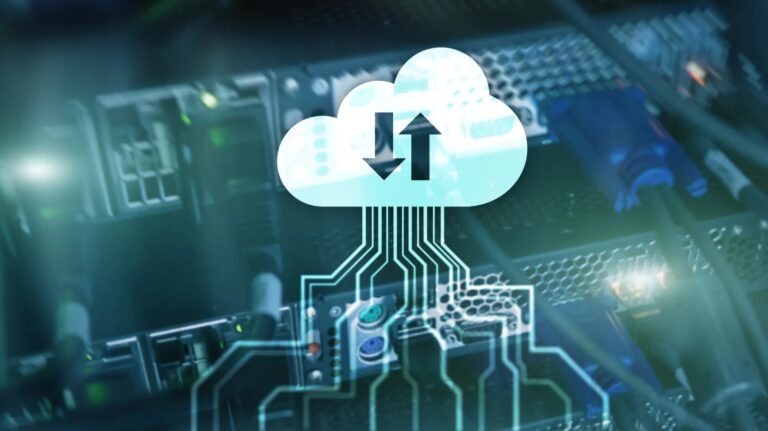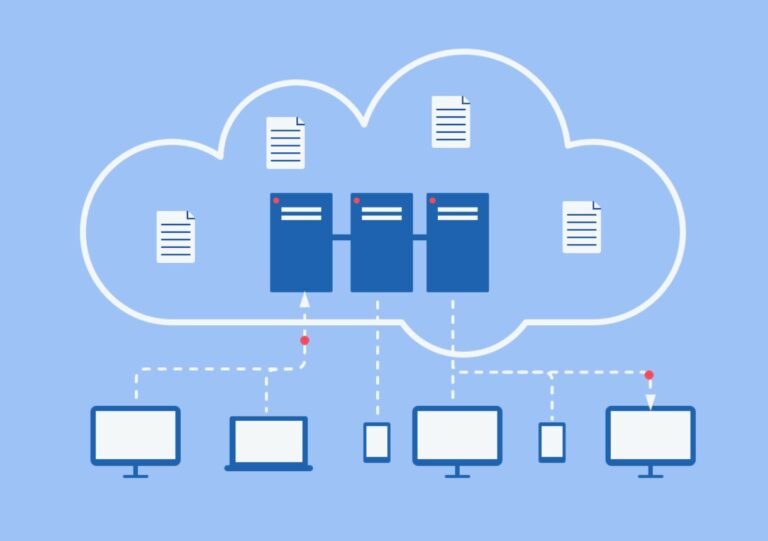Server Cloud: Benefits, Comparison & Purchase Guide
Server cloud solutions have completely transformed the management of IT infrastructure for businesses.
The shift to cloud computing offers many benefits, including easily scaling resources, reducing costs, and improving security measures.
This comprehensive guide will delve into the leading server cloud products, outlining their advantages and providing insights on selecting the most suitable solution to meet your requirements.
What is a Server Cloud? ☁️
A cloud server, also known as a server cloud or virtual server, is a type of server that operates within a cloud computing infrastructure. Unlike conventional physical servers, cloud servers deliver high levels of scalability and reliability.
They are designed to be hosted on multiple physical servers, which helps to minimize downtime and reduce the risk of data loss. This architecture provides a robust and flexible platform for various computing needs.
Benefits of Using Server Cloud Solutions 🎯

1. Scalability 📈
Old servers can be adjusted to handle varying workloads, either increasing or decreasing in capacity based on your needs.
This flexibility allows you to manage changing workloads without the need to invest in extra hardware.
2. Cost Efficiency 💰
With as-you-go pricing models, you are billed based on the actual resources you use, which allows for a more precise and cost-effective approach to payment.
This structure reduces the need for significant upfront investment and ongoing maintenance expenses, ultimately providing a more efficient and affordable solution.
3. Reliability 🔄
With our cloud servers hosted across multiple geographically dispersed data centers, we minimize the risk of downtime, ensuring continuous availability of your services.
This architecture provides redundancy and failover capabilities to maintain seamless operations even in the event of hardware or network failures.
4. Security 🔒
Many service providers offer a range of advanced security features to ensure the safety of your data.
These measures often include robust encryption protocols to protect data in transit and at rest, regular automated backups to prevent data loss, and firewalls to prevent unauthorized access and cyber-attacks.
These features work together to provide comprehensive protection for your valuable information, giving you peace of mind that your data is safe and secure.
See also: Cloud Web Server: Guide, Top Solutions, Benefits, and How to Buy
Top Server Cloud Solutions 🌟
1. Amazon Web Services (AWS)
Amazon Web Services (AWS) is a highly regarded and extensively used cloud platform that provides a vast array of over 200 fully equipped services.
These services are accessible from numerous data centers spread across the globe, making AWS a globally renowned cloud computing solution.
Benefits:
- Highly scalable and flexible
- Wide range of services and integrations
- Strong security measures and compliance
Use Cases:
- Hosting applications and websites
- Data storage and backup
- Machine learning and AI workloads
2. Microsoft Azure
Azure is a comprehensive and powerful cloud computing platform and service developed by Microsoft.
It provides a vast array of cloud services, encompassing computing, analytics, storage, and networking, among others.
Azure’s offerings enable users to build, deploy, and manage applications and services through Microsoft’s global network of data centers.
Benefits:
- Integration with Microsoft products
- Extensive AI and machine learning capabilities
- Hybrid cloud support
Use Cases:
- Enterprise-grade cloud applications
- Disaster recovery solutions
- IoT implementations
See also: Azure Cloud Server: Benefits, Comparisons, and Purchase Guide
3. Google Cloud Platform (GCP)
Google Cloud Platform offers a comprehensive range of cloud computing services that are built on the very same infrastructure used by Google to run its own consumer-facing products.
Benefits:
- Advanced data analytics and machine learning
- Global network with high-performance
- Strong security and compliance
Use Cases:
- Big data processing and analytics
- Cloud-native applications
- Development and testing environments
4. IBM Cloud
IBM Cloud offers a full-stack cloud platform with over 170 products and services covering data, containers, AI, IoT, and blockchain.
Benefits:
- Leader in AI and quantum computing
- Robust hybrid cloud solutions
- Comprehensive data services
Use Cases:
- AI and machine learning
- Blockchain applications
- Enterprise cloud migration
5. Oracle Cloud
Oracle Cloud is a comprehensive cloud computing service provided by Oracle Corporation. It encompasses a wide range of offerings including virtual servers, storage options, networking capabilities, diverse applications, and a variety of services.
These resources are made available through a worldwide network of data centers managed by Oracle Corporation, ensuring global coverage and efficient service delivery.
Benefits:
- Integrated with Oracle software
- High performance for enterprise workloads
- Advanced security features
Use Cases:
- Database management and analytics
- ERP and CRM solutions
- Enterprise applications
See also: Server Cloud Backup: Secure Your Data with the Best Options
Comparison Table 📝
| Feature | AWS | Microsoft Azure | Google Cloud Platform | IBM Cloud | Oracle Cloud |
|---|---|---|---|---|---|
| Scalability | Excellent | Excellent | Excellent | Very Good | Very Good |
| Cost | Pay-as-you-go | Pay-as-you-go | Pay-as-you-go | Pay-as-you-go | Pay-as-you-go |
| Security | High | High | High | High | High |
| Best For | General use, startups, large enterprises | Enterprise solutions, Microsoft integration | Big data, analytics, machine learning | AI, machine learning, blockchain | Enterprise applications, databases |
| Pricing | Competitive, varies by services | Competitive, varies by services | Competitive, varies by services | Competitive, varies by services | Competitive, varies by services |
| Key Features | Wide range of services, global reach | Strong hybrid cloud, AI capabilities | Advanced analytics, high-performance network | AI, hybrid cloud, quantum computing | Integrated with Oracle software, high performance |
How to Buy Server Cloud Solutions 🛒
- Visit the official websites of the respective providers:
- Sign up for an account to access the free tier and explore the services.
- Choose the appropriate service plan based on your needs, such as computing, storage, database, and networking services.
- Configure your cloud server by selecting the instance type, region, and other specifications.
- Complete the purchase through the provider’s secure checkout process.
FAQs 🤔
1. What is a server cloud?
A server cloud is a virtual server hosted in a cloud computing environment, offering scalability, reliability, and cost efficiency compared to traditional physical servers.
2. Why should I choose a cloud server over a traditional server?
Cloud servers offer better scalability, cost savings, reliability, and security, making them ideal for dynamic and growing businesses.
3. Which cloud server provider is the best?
The best provider depends on your specific needs. AWS, Microsoft Azure, and Google Cloud Platform are all excellent choices, each with unique strengths.
4. Can I switch cloud providers if needed?
Yes, you can switch providers, but it may involve data migration and reconfiguration of services.
5. How secure are cloud servers?
Cloud servers are highly secure, with providers implementing advanced security measures, including encryption, firewalls, and regular security updates.
By considering these top server cloud solutions, you can make an informed decision that best fits your business needs. Whether it’s AWS, Azure, GCP, IBM Cloud, or Oracle Cloud, each offers unique benefits and features to help you achieve your goals.





